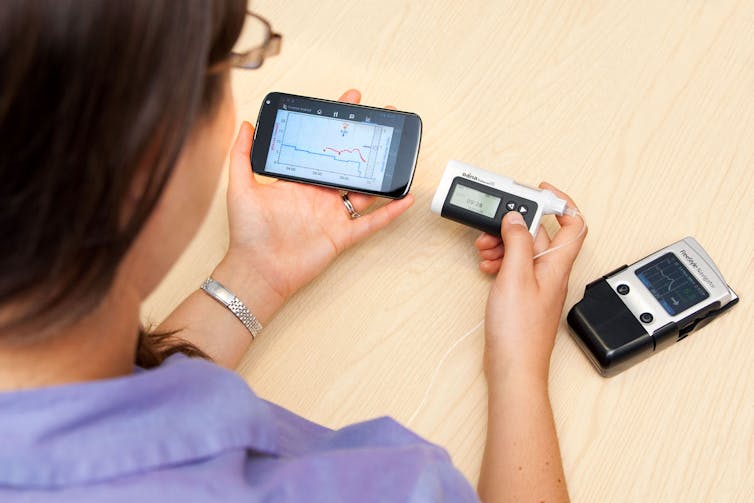
Revolutionizing Diabetes Management: The Promise of Artificial Pancreas Technology
Diabetes, a chronic condition affecting millions worldwide, has witnessed significant advancements in its management through technology. Artificial Pancreas Technology (APT) emerges as a groundbreaking innovation, offering new hope and improved quality of life for individuals living with diabetes.
A Seamless Integration of Technology: Understanding Artificial Pancreas Technology
At its core, Artificial Pancreas Technology is a sophisticated system designed to mimic the function of a healthy pancreas. Comprising an insulin pump and continuous glucose monitoring (CGM) device, this technology automates the delivery of insulin based on real-time glucose levels. The goal is to maintain blood sugar levels within a target range, reducing the need for constant manual adjustments.
Continuous Glucose Monitoring: Real-Time Insights for Better Control
One of the key components of Artificial Pancreas Technology is Continuous Glucose Monitoring (CGM). This device provides real-time insights into glucose levels, offering a comprehensive view of a person’s blood sugar variations throughout the day. With this continuous data stream, the artificial pancreas system can make timely and precise adjustments to insulin delivery.
Automated Insulin Delivery: A Shift from Manual Management
The hallmark of Artificial Pancreas Technology is its ability to automate insulin delivery. Traditionally, individuals with diabetes have had to manually calculate insulin doses and administer injections or adjust pump settings. With APT, the burden of constant management is alleviated as the system takes on the role of dynamically adjusting insulin delivery based on real-time glucose readings.
Enhancing Glycemic Control: Improving Health Outcomes
By providing a more precise and dynamic insulin delivery mechanism, Artificial Pancreas Technology contributes to enhanced glycemic control. Maintaining blood sugar levels within the target range is crucial for preventing both short-term complications, such as hypoglycemia, and long-term complications associated with diabetes, including cardiovascular issues and nerve damage.
Reducing the Risk of Hypoglycemia: A Critical Advantage
Hypoglycemia, or low blood sugar, is a significant concern for individuals with diabetes. Artificial Pancreas Technology excels in reducing the risk of hypoglycemia by responding promptly to changes in glucose levels. The automated adjustments ensure that insulin delivery is appropriately modulated, preventing dangerous drops in blood sugar that can have severe health implications.
Improving Quality of Life: Less Intrusive Diabetes Management
The integration of Artificial Pancreas Technology translates into a less intrusive and more user-friendly approach to diabetes management. The constant need for manual interventions, such as multiple daily injections or frequent pump adjustments, is significantly reduced. This shift not only improves the quality of life for individuals with diabetes but also reduces the mental and emotional burden associated with constant vigilance.
Challenges and Considerations: Navigating the Path to Adoption
While the potential benefits of Artificial Pancreas Technology are immense, its widespread adoption comes with challenges. Issues such as device affordability, user education, and regulatory approval need careful consideration. Overcoming these challenges requires collaboration among healthcare professionals, technology developers, and regulatory authorities.
The Future Landscape: Advancements and Integration
As technology continues to advance, the future landscape of Artificial Pancreas Technology holds exciting possibilities. Ongoing research and development aim to refine the algorithms, enhance device connectivity, and expand the capabilities of these systems. Integration with emerging technologies, such as artificial intelligence, promises to further optimize diabetes management.
Empowering Individuals: A Paradigm Shift in Diabetes Care
Artificial Pancreas Technology represents a paradigm shift in diabetes care, empowering individuals to achieve better glycemic control with less manual effort. As this technology evolves and becomes more accessible, it has the potential to transform the lives of those living with diabetes, offering a future where managing the condition is not just effective but also more convenient and less burdensome.
To delve deeper into the transformative realm of Artificial Pancreas Technology, visit Centrum Zdraví for comprehensive information and resources.

